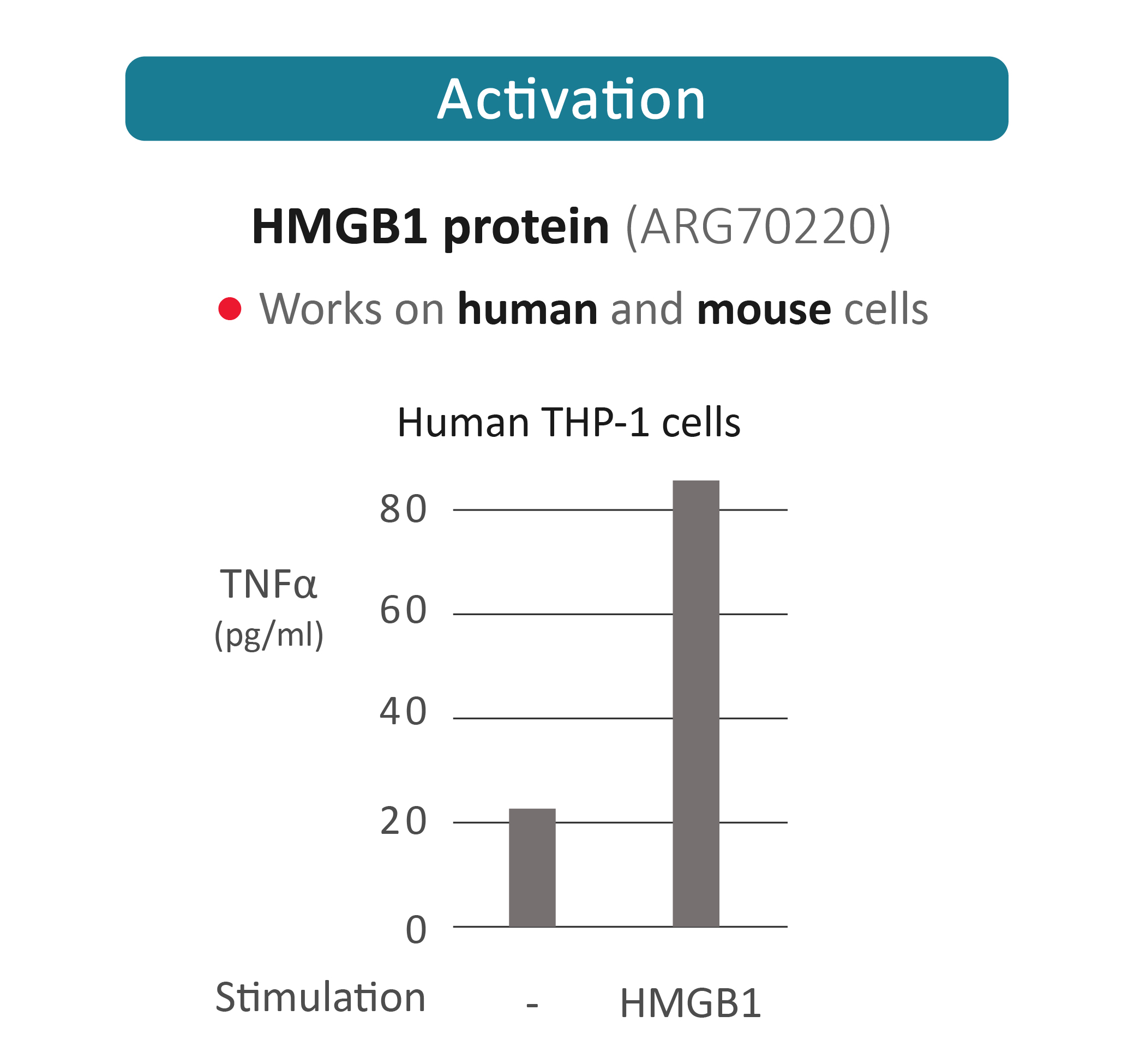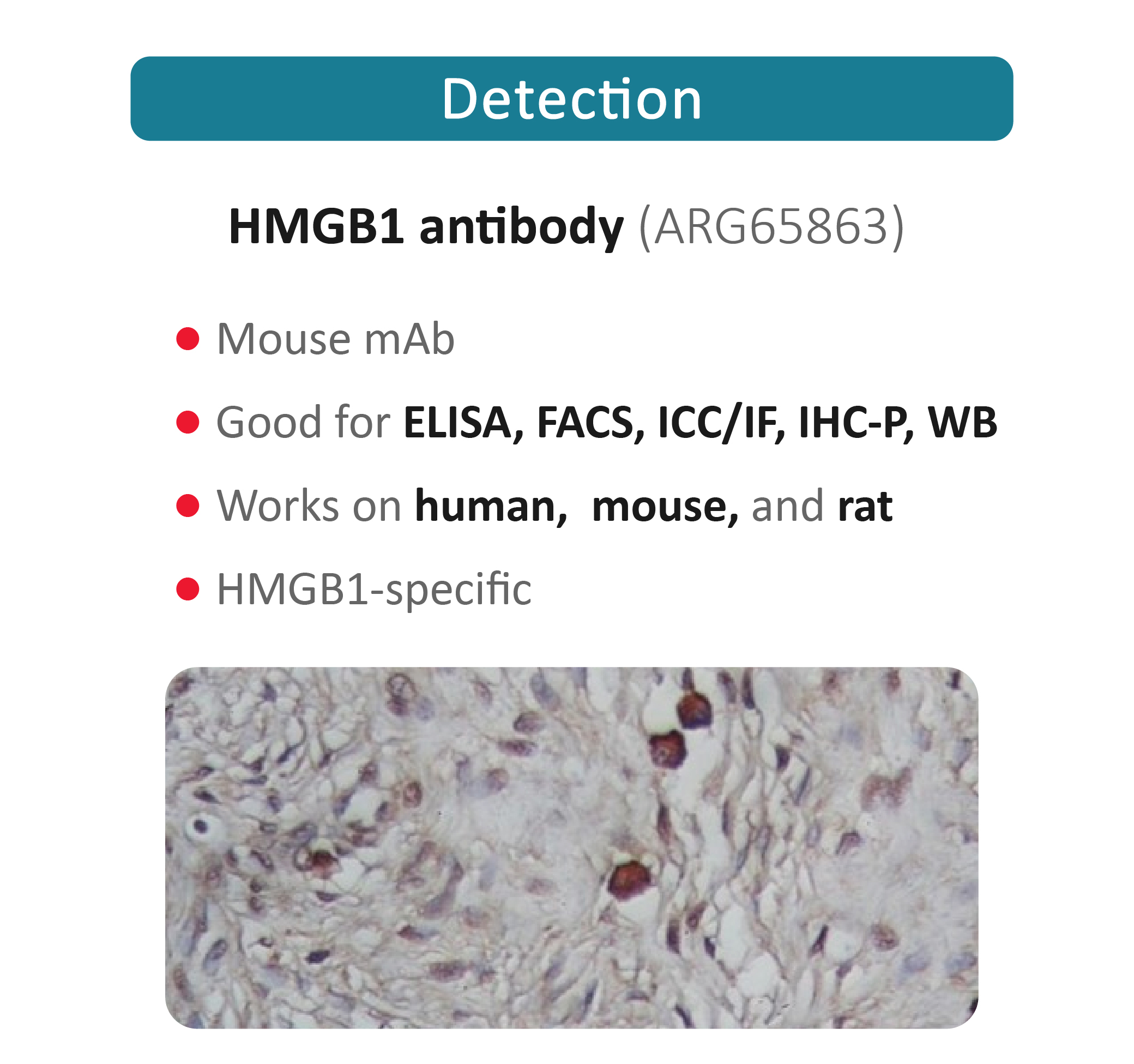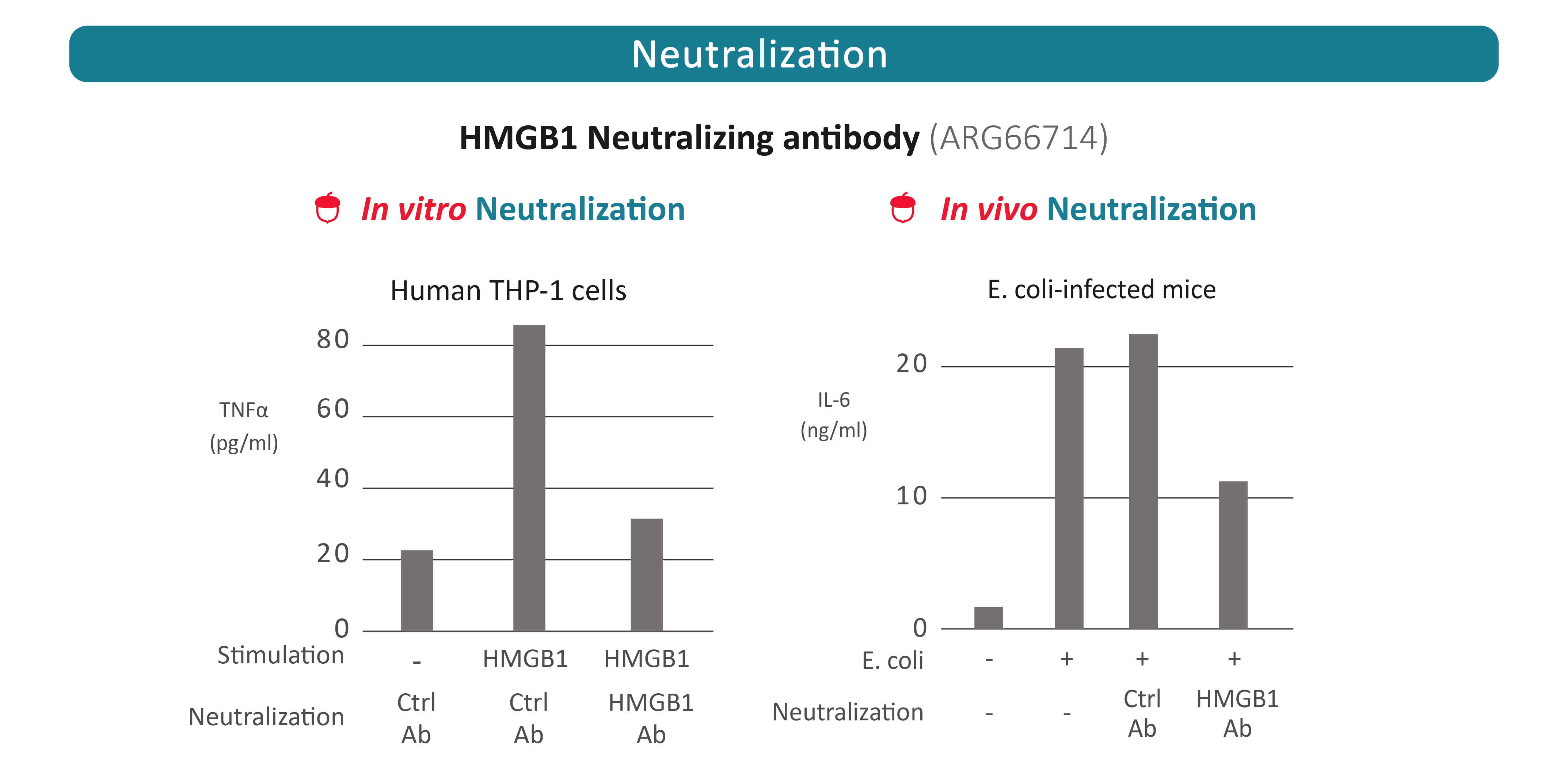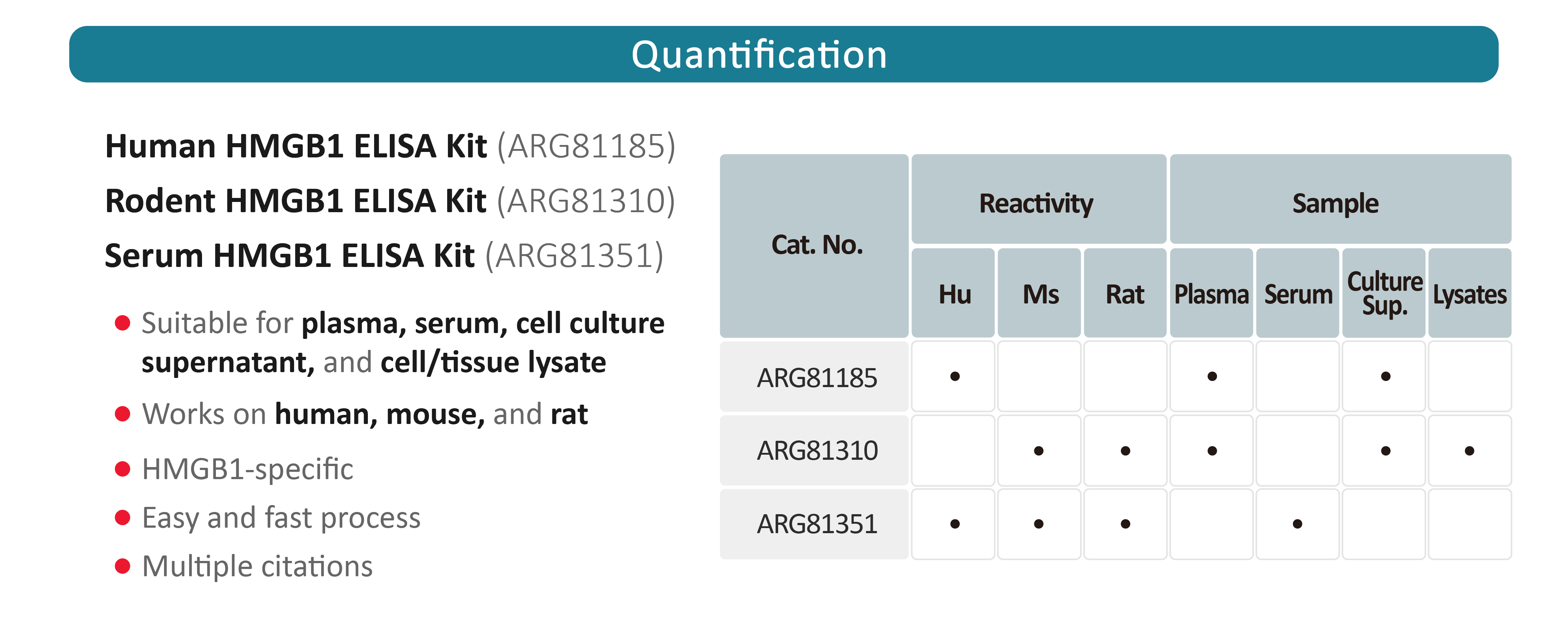HMGB1 in TME (tumor microenvironment)
HMGB1 in TME (tumor microenvironment)
|
HMGB1 is a multifunctional protein. It has dual roles in tumor microenvironment (TME). During tumor development, HMGB1 acts as a pro-tumoral protein by promoting tumor growth, angiogenesis, immunosuppression, invasion and metastasis. However, HMGB1 also plays an anti-tumoral role by mediating immunogenic cell death (ICD) during chemoradiotherapy and enhance anti-tumor immunity. HMGB1 provides potentially therapeutic strategy for cancer chemoradiotherapy and immunotherapy. |
|
● HMGB1 induces angiogenesis |
|
Endothelial cells (ECs) play pivotal roles in tumor angiogenesis. Tumor-derived HMGB1 stimulates the migratory and sprouting capacity of ECs. Besides, HMGB1 also recruits and activate macrophages to produce angiogenic factors for vasculature formation. |
|
● Immunosuppressive role of HMGB1 |
|
In tumor microenvironment (TME), tumor-derived HMGB1 suppresses CD8+ T cell-dependent antitumor immunity by facilitating myeloid-derived suppressor cell (MDSC) differentiation and stimulating Treg-mediated immunosuppression. Moreover, HMGB1 binds to immunosuppressive receptor TIM‐3 on dendritic cells (DCs), interferes DC’s function and therefore inhibits the anti-tumor immune response. |
|
● HMGB1 promotes invasion and metastasis |
|
HMGB1 is highly expressed in a variety of malignant tumors. It promotes epithelial-mesenchymal transition (EMT), invasion and metastasis by HMGB1-RAGE signaling. |
|
● HMGB1 activate immunogenic cell death (ICD) |
|
ICD is a form of cell death resulting in an activation of immune response. ICD is triggered by damage-associated molecular patterns (DAMPs) which include HMGB1 release. The dying cell-derived HMGB1 binds to TLR4 to induce DC maturation, antigen presentation and subsequent cytotoxicity mediated by CD8+ T cells. Monitoring HMGB1 release is common for evaluating the effects of chemoradiotherapy or ICD.
|
|
|




